Article
Tailoring Through a Different Lens: A Neurodivergent Perspective on the Process

The bespoke tailoring process is, by nature, a personal experience, shaped by each individual’s preferences, needs, and way of engaging with the world. At King & Allen, we respect that individuality, tailoring our approach to match how each person prefers to communicate and navigate the journey.
In this blog, we talk to Lori-Jade Siegle, content creator, vintage fashion enthusiast, and advocate for an autism charity, about her experience getting a King & Allen bespoke suit. A proud autistic woman, Lori shares our commitment to supporting the neurodivergent community. She speaks openly and honestly about her life, offering valuable insight into what the tailoring experience can feel like through a neurodivergent lens.
Getting to Know Lori-Jade
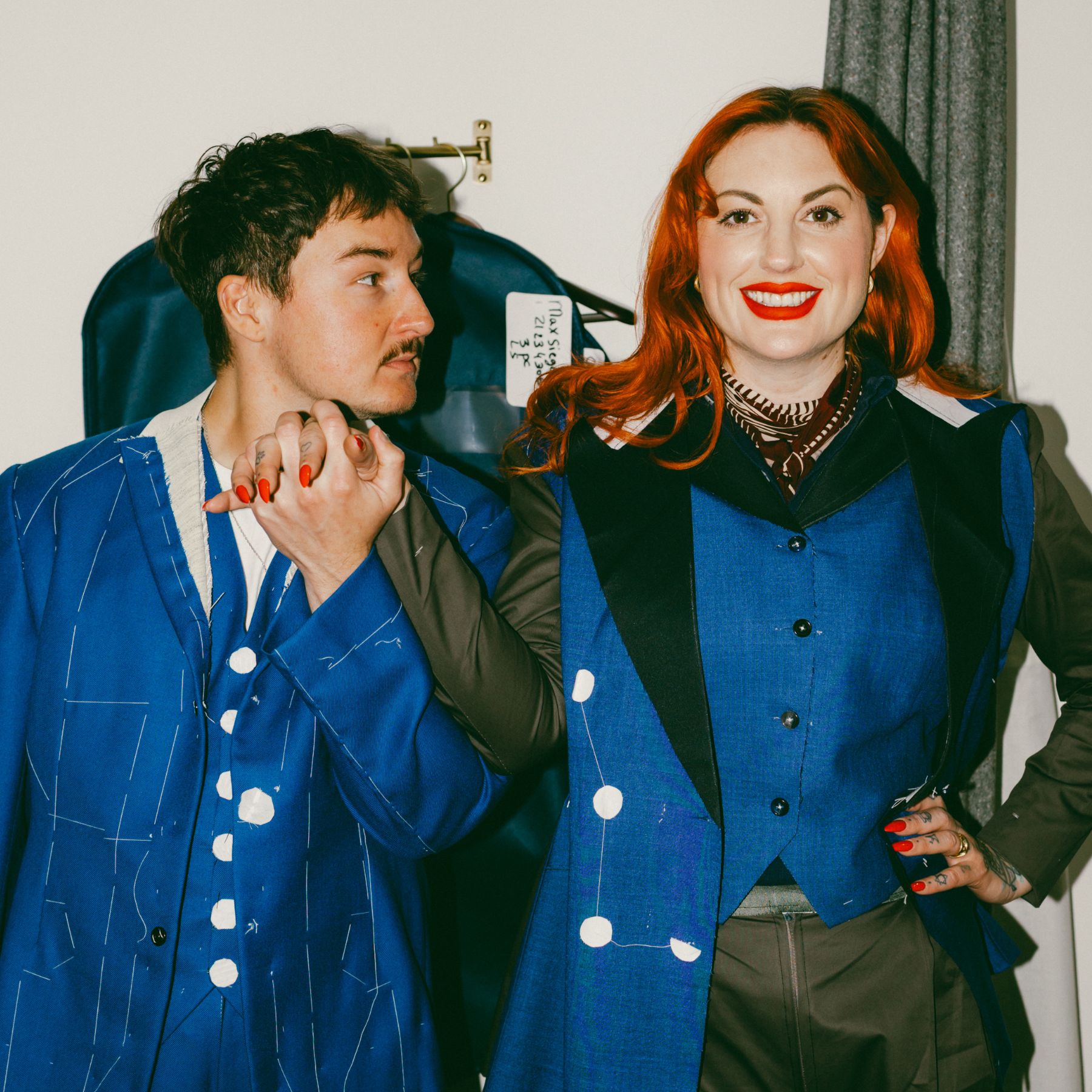
What work do you do in neurodiversity advocacy, and what prompted you to choose this path?
Outside of being a content creator, I work for a UK autism charity as their ‘Celebrity and Media Engagement Manager’. I had a decade-long career in TV, but had to change my career path when I realised I might be neurodivergent, and that the unstable nature of the TV industry was causing me to experience a lot of mental health issues. I love where I now work, and my job is perfect - I get to do something meaningful with a routine and the support I need as an autistic / ADHD person.
How do you feel about fashion and personal style in general as an autistic / ADHD individual?
Standing out, not fitting in, and being unique and creative with my personal style have always been of great importance to me. I didn't realise that the way I dressed may have been directly related to my neurodivergence until much later in life. I've always dressed in vintage clothing and worn styles from the 1920s to the 1960s. I wore each era in a period-correct way, from the way I styled my hair to the underwear and shoes I put on. I realise now that following 'rules' (usually looking at old photos and reference books, and recreating outfits from each decade) makes it easier to get dressed. I'm experimenting more with just wearing what I like these days, but fashion is so vast, and there are so many choices - I'm finding it really difficult. I also see now that I probably used my fashion to 'mask' - it's easier not to give your personality away when people are looking at what you're wearing as opposed to what you're saying.
What first led you to be interested in getting a tailored suit? Have you struggled with finding off-the-rack clothing that feels comfortable or suits your needs?
I've had a few garments made for me in the past, but never a suit! I love the androgyny and gender bending of the 20s, 30s and early 40s, especially people like Coco Chanel (political affiliations notwithstanding!) and Marlene Dietrich. I've bought vintage suits in the past, but with my proportions (tall and curvy!) I never found one that felt quite right. I also struggle with the sensory feeling of modern fabrics, which is another reason I've worn vintage clothes. Even if I found a modern ladies' suit that fit, so often the material is a synthetic blend, which sets my teeth on edge!
Preemptive Feelings About the Tailoring Process
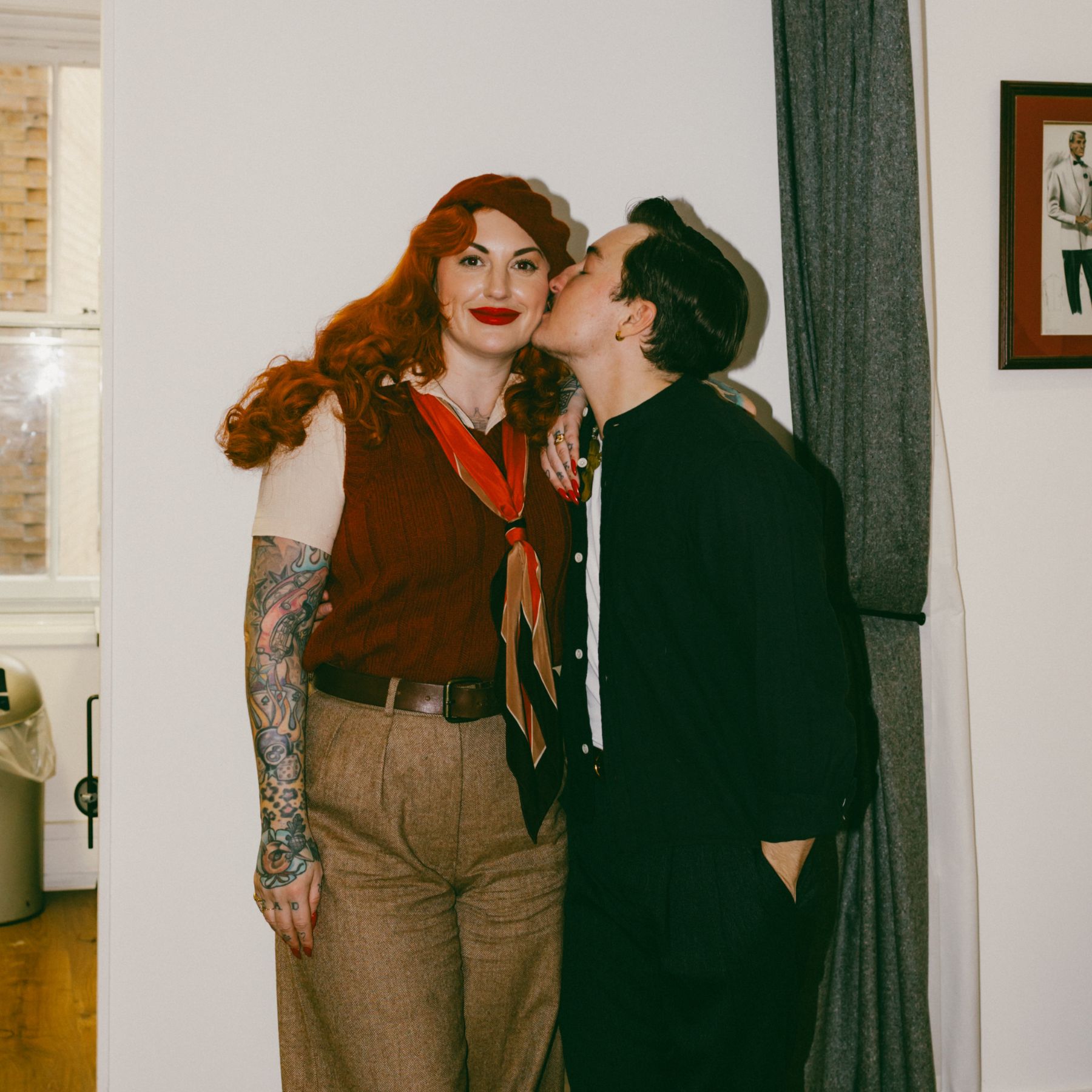
What parts of the tailoring process were you most excited for?
The finished result - I'm so impatient! But other than that, I was really excited to browse fabrics and linings to find something just perfect.
Were there any specific concerns you had before coming in, and were these addressed during the process?
Any social or business interaction causes me a bit of stress, especially if I feel like I have to mask or be 'on' - sometimes the thought of having to perform in any way leads me to cancel things, as I might not have the capacity to be uncomfortable for other people's comfort. I really felt that, at King & Allen, I could just be myself and talk (or not talk!) as much as I felt able to.
What do you think autistic people may find the most scary before they come in for their initial consultation?
Oh, there are so many things that could be uncomfortable and scary for an autistic person! I don't purport to speak for all autistic people, but a lot of us struggle with small talk and generally having to mask, being touched, sensory issues around potential noise, lights, fabric and the worry that we won't be able to express ourselves in a way the tailors will understand.
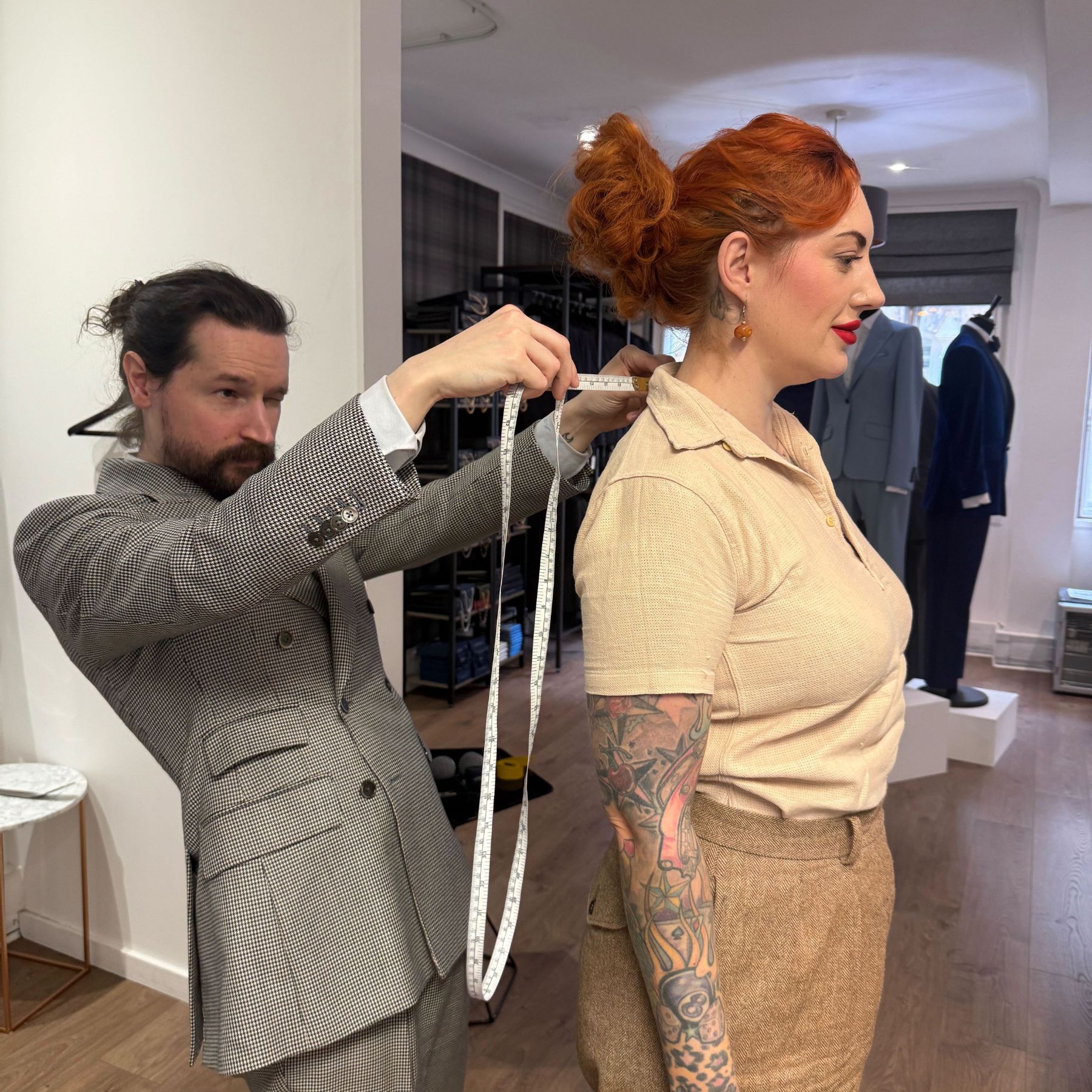
Making the Tailoring Experience More Inclusive:
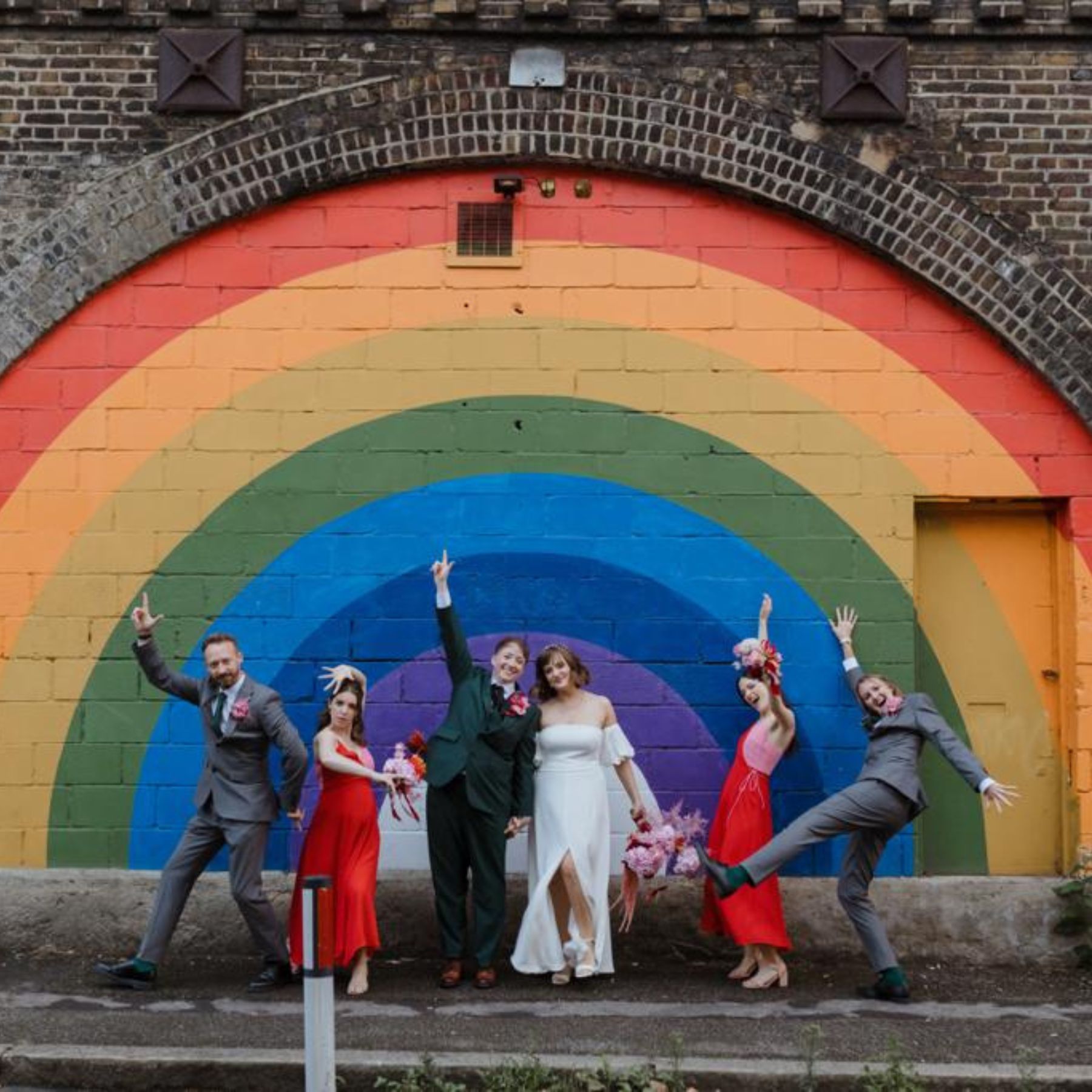
Sensory Considerations
We recognise that fabric choice is a big part of tailoring. How important is texture and feel for a neurodivergent individual?
Not all autistic people struggle with touch/fabric sensory issues, but I definitely do. Anything scratchy, synthetic feeling, any material that isn't breathable that might cause difficulties in temperature regulation - there's loads to think about! I'm also very specific about patterns and colours, and feel like everything I put on my body has to be 'just right' or it'll torpedo my entire day.
Are there certain materials or features that might be more comfortable or less overwhelming?
Personally, I need natural, non-synthetic materials. I do like wool, but it can't be too scratchy to wear or touch. I don't struggle with fine motor skills, really, but some autistic people do, so using alternatives to buttons is always a good call. I think the most important thing that King & Allen are able to do is really listen and make the changes or add features as needed to cater to the individual.
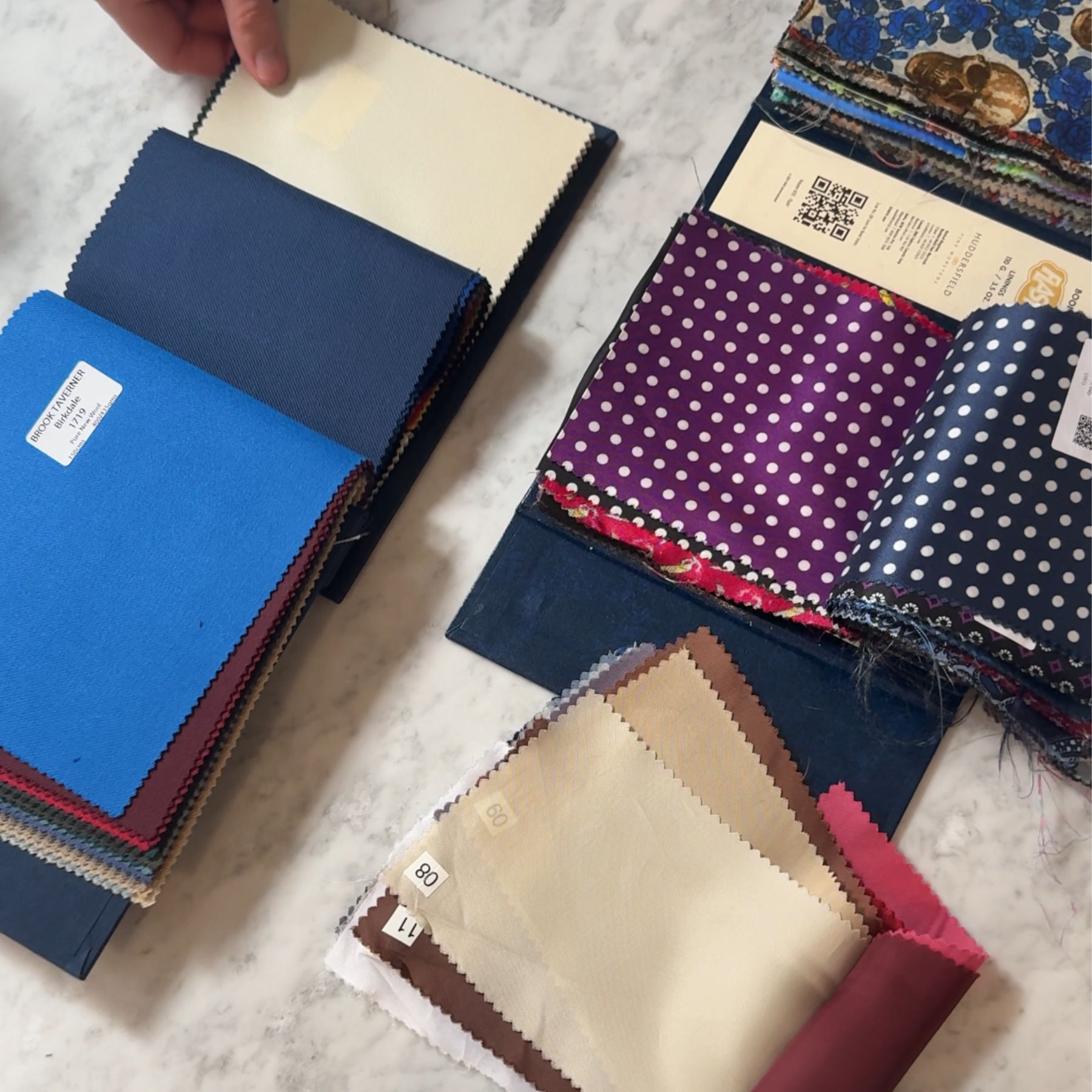
Communication Styles
Considering that most clients are new to tailoring, does King & Allen's way of explaining terms or processes make it easy to follow?
Again, I can only speak to my experience, but the team have always been amazing at making me feel comfortable and explaining things in a way that doesn't feel intimidating or overwhelming. I have some fashion knowledge (my mother is an amazing seamstress, unfortunately not an ability I've inherited or been able to learn), so I'm quite comfortable with the language used in tailoring, but it's always great to be able to keep things simple for those who might not understand.
Each person is unique in the way they communicate, and we pride ourselves on creating a welcoming and non-judgemental space. Are there any aspects of how we interact that have helped you feel more at ease with the process?
We always say 'If you've met one autistic person.....you've met ONE autistic person', meaning we are all individual and unique, and there isn't a 'one size fits all' way to communicate with us. I think the important thing that you do as a company is to ask the individual what they want or need. Being as open as possible to taking someone through the process in a way that works for THEM is key. This could be anything from communicating requirements in writing or photos rather than verbally, to showing a trusted person or carer what measurements are needed, so someone doesn't necessarily need to be touched by a stranger. I have always felt super comfortable throughout, and know that if I have any access or adjustment needs, you will always do your best to accommodate them.
Overall, how have you enjoyed your experience so far, and have you felt seen and heard?
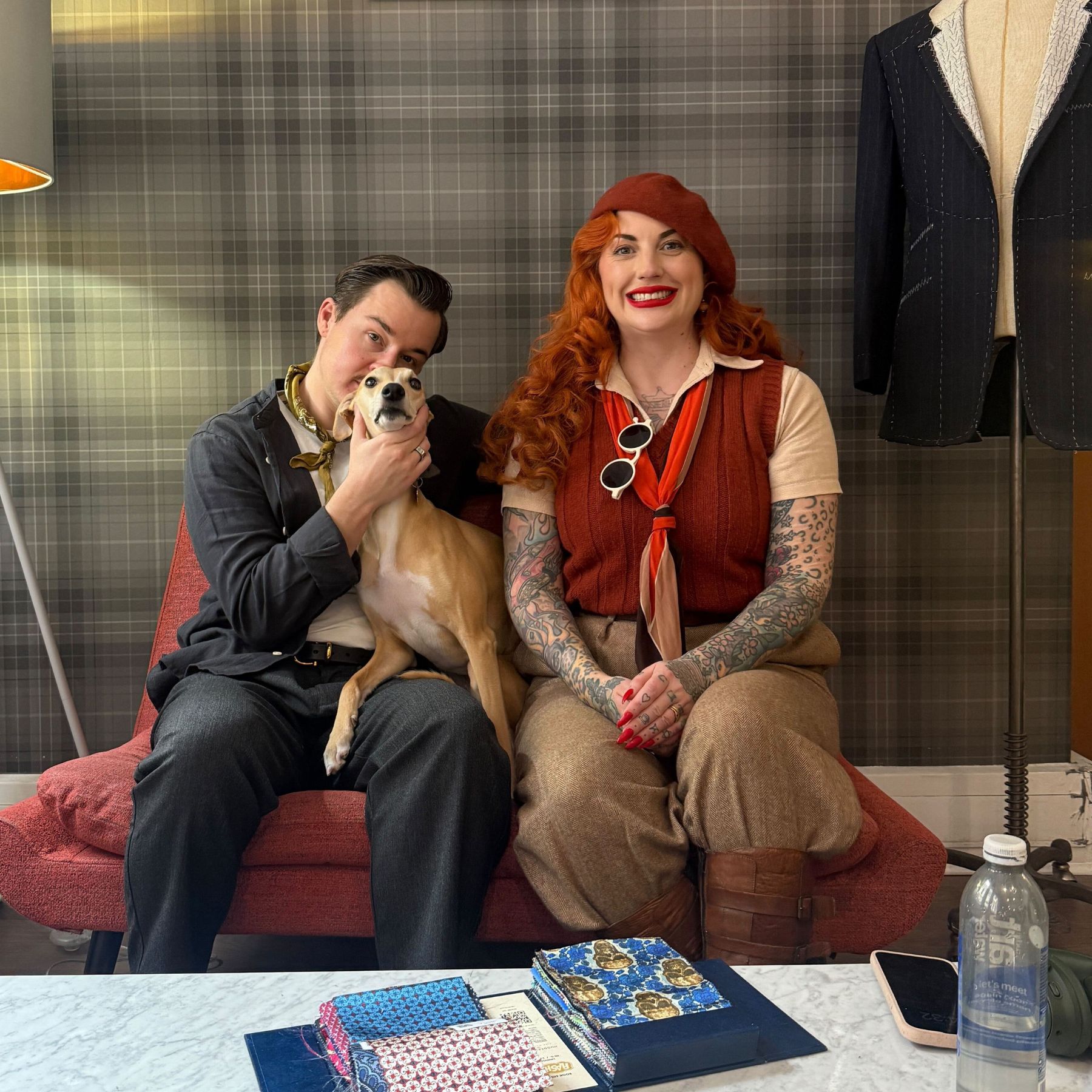
So far, everything has been wonderful. Communication has been clear and I have never felt rushed or pushed into making decisions. I know that my suit is going to be iconic, and I'm super happy that my vision was understood and that Joe and the team seemed to be really on board with it too. Looking forward to my next visit already!
Lori’s experience is one we’re proud to share. You can follow her journey through the entire bespoke tailoring process, from the initial consultation to the baste fitting and final fittings, over on our social media channels. We’ll be documenting each stage to give an honest, behind-the-scenes look at what inclusive tailoring can look like.
If you have more questions about the tailoring process or need support before your initial consultation, please don’t hesitate to contact us here, or give us a call on 020 8390 6134.

